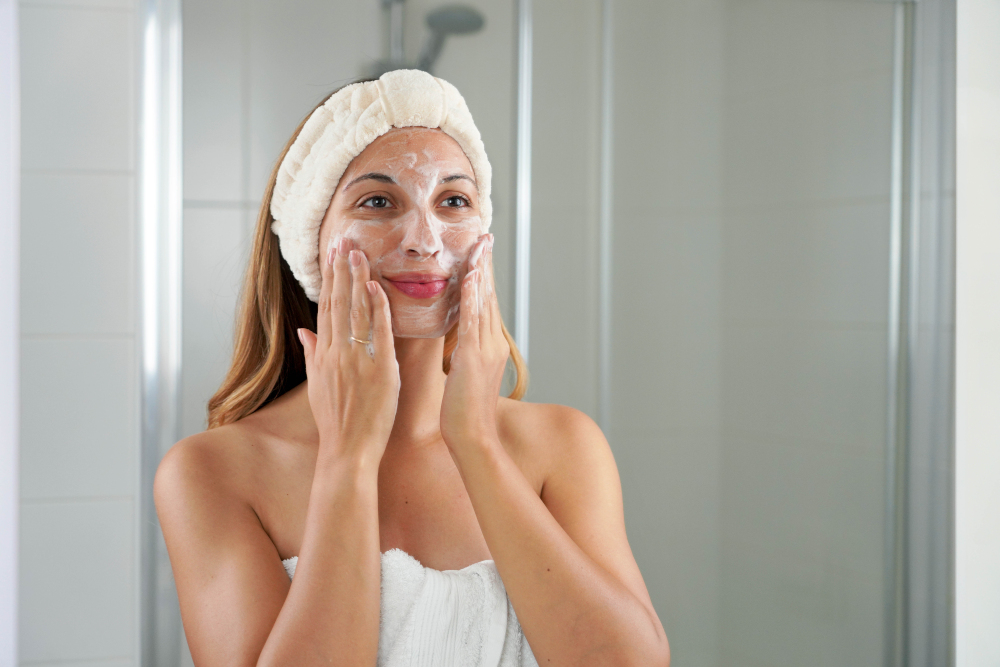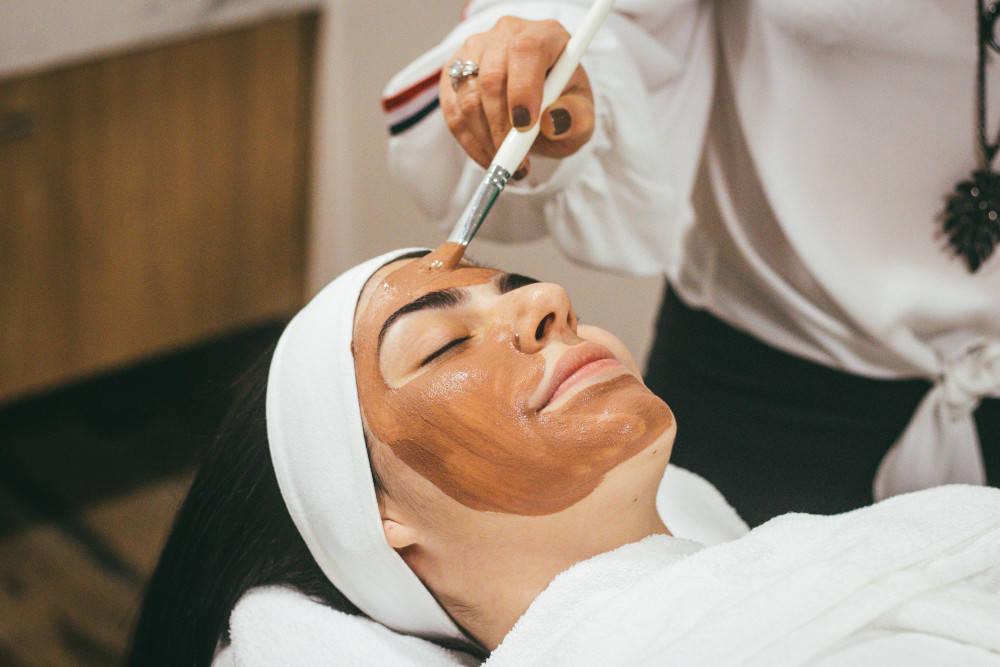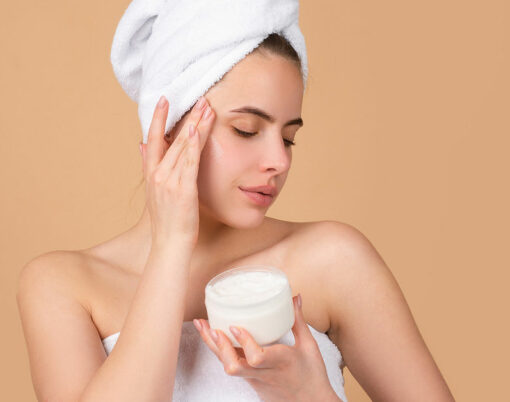Without a robust skincare regime in place, the winter weather can quickly begin to take its toll on your complexion, and with the elements and a whole host of environmental stressors to contend with, dryness, itching and irritation are common complaints that many people struggle with at this time of year.
The drop in temperature and low humidity levels are to blame for much of this, but the good news is that by reassessing your current morning and evening skincare routine and making some educated swaps, you can enjoy great skin year round.
Although you may not need to change your skincare routine completely, a few simple tweaks here and there can make all the difference, and paying greater attention to the ingredients you choose can give you a much-needed boost. Here are some simple tips to keep your skin looking and feeling healthy and radiant in the cold months – and all with minimal effort.
Cleanse twice a day

When the cell regenerates, debris gets stuck on the upper layer of the skin, which needs to be cleansed so your skincare products will effectively penetrate your skin. Do this twice a day, especially if you apply products in the morning and evening, and opt for a product with moisturising properties. You need extra moisture to keep skin feeling soft, supple and hydrated during the winter months because the cold weather and environmental stressors like wind and central heating can quickly begin to take their toll without it.
Add to that the low humidity level during winter, which makes the air dry and can also negatively affect your skin and cause flaking and peeling, and it’s extra important to consider the formulation of your cleanser carefully. Choose alcohol-free cleansers that are gentle on the skin to prevent further irritation – cream cleansers are a great choice that soak nicely into the skin and won’t dry it out.
Protect against winter acne

It’s a common misconception that acne only gets worse during the summer season as it can also flare up during the winter months without the right measures in place. The body creates more sebum in response to the skin becoming dry, but this, in turn, can result in clogged pores and lead to an increase in breakouts. Because of the dry air, maintaining the right moisture balance in the skin is more challenging, so as well as choosing the right cleanser you’ll also need to opt for toners, serums and moisturisers that are non-comedogenic – in other words, that do not contain ingredients that could clog the pores.
Sites like www.anytimedoctor.co.uk are a great option if you’re unsure where to start, as you can book a virtual consultation with one of its doctors and receive tailored advice. If necessary, they’ll be able to prescribe treatments to help get your acne under control if it can’t be managed with a good skincare routine alone.
Use recovery facial masks

Recovery facial masks have become increasingly popular in recent years and are a great weapon to have up your sleeve should you find your skin in need of some TLC. There are a variety of different options available so you’ll need to bear in mind what your personal skin concern is before you buy – a hydrating and moisturising mask will help to lock in the moisture your dry skin needs, while masks with anti-inflammatory properties are also excellent, as they can reduce redness and swelling and soothe flaky or sensitive skin.
To use, you’ll need to first remove your makeup with a gentle remover and wash your face with a mild cleanser. Then, apply the mask and leave for 15 to 20 minutes – but be sure to check the instructions on your chosen product, as this can vary. With many masks, there’s no need to rinse once you take it off. Instead, gently massage the residue into your face for the remaining product to penetrate the skin for an added moisture hit.
Don’t skip your sunscreen

Another common mistake people make during the winter is not applying sunscreen, but it’s still important to do this daily, even when the sun doesn’t appear to be shining, as it emits harmful UV rays throughout the year that can result in skin damage, premature signs of aging and in extreme cases, even skin cancer.
Even on a cloudy, rainy, or snowy winter day, the UV rays can still penetrate and damage your skin, so, ensure you apply sun protection as you would during summer. If your sunscreen feels too heavy, go for breathable and light ones and moisturisers with SPF included.
Don’t forget your lips

Your lips are also part of your skin and tend to dry out during the winter months – but many people forget to look after them. Use a weekly lip scrub to slough away dry, flaky skin and leave them feeling soft and smooth, and carry a hydrating lip balm with you to protect them from the elements and prevent chapping. Look for a formula that offers sun protection to ensure you have all bases covered.
Stay hydrated on the inside

It’s often said that beauty comes from within, and what we eat and drink can have a dramatic effect on skin health. But while it’s important to ensure you’re getting a broad spectrum of vitamins and minerals from your diet, the amount of water you drink is just as key, and failing to keep your levels topped up throughout the day can quickly lead to dry and dehydrated skin on the outside.
Your body is around 60 per cent water, so it will thank you for drinking plenty of it. The skin itself is made up of up to 64 per cent water, so it’s easy to see why not drinking as much during the winter months can soon begin to take its toll.






















